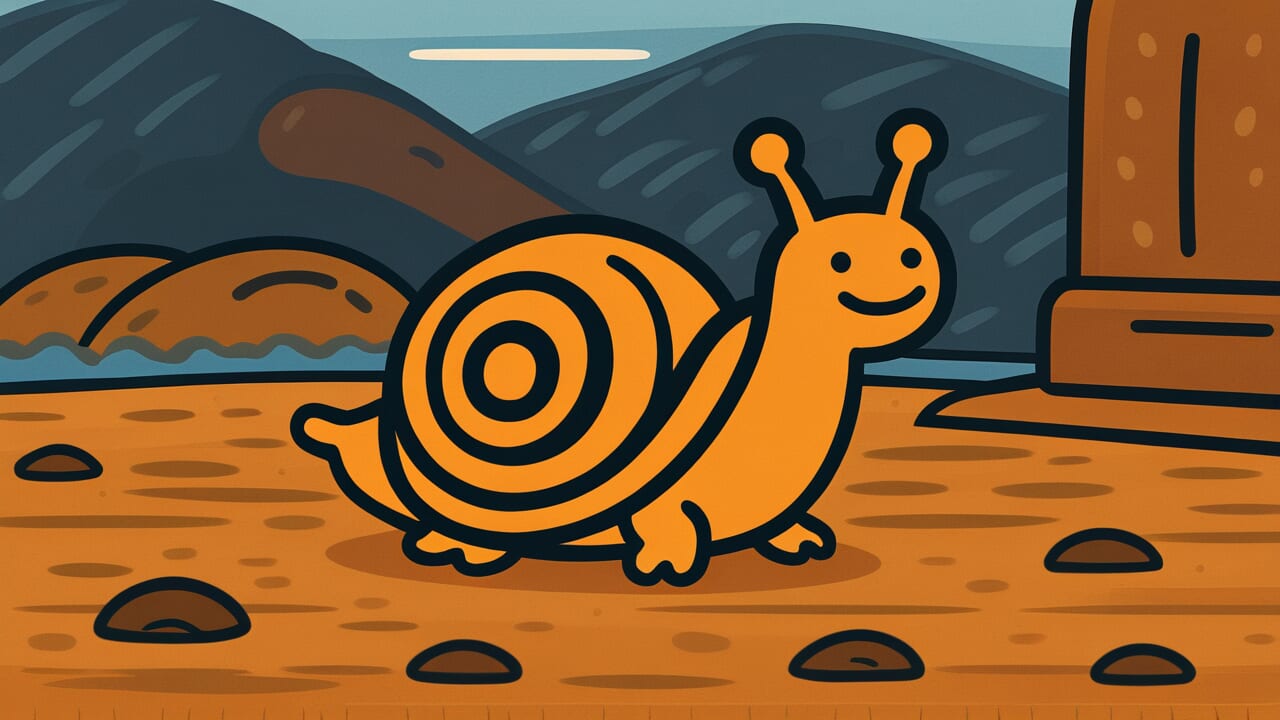How to Read “A snail knows the weather”
Kagyū ga hiyori wo shiru
Meaning of “A snail knows the weather”
“A snail knows the weather” means that even small creatures have the ability to sense changes in nature.
Snails and other tiny creatures that seem insignificant can detect weather changes with great sensitivity.
This teaches us that physical size or weak social position doesn’t determine one’s ability to perceive things.
People use this proverb when they’re about to underestimate someone. It also helps when you feel small and are losing confidence in yourself.
The saying reminds us that big or powerful figures aren’t the only ones who make correct judgments.
Today, we understand it in contexts where people with weak positions in organizations can still sense changes keenly.
Even young people with little experience can pick up on subtle shifts in atmosphere.
The proverb shows the importance of having a humble and warm perspective. It recognizes that small beings have their own unique senses and value.
Origin and Etymology
The exact first appearance of this proverb in literature isn’t clear. However, the structure of the phrase reveals an interesting background.
“Kagyū” means snail. “Hiyori” refers to weather, especially fair weather.
Japanese people have long observed how snails become active before rain. They noticed snails react sensitively to changes in humidity.
In times when agriculture was central to life, predicting weather changes was a matter of survival.
Without weather forecasting technology, people tried to read the weather from the behavior of creatures in nature.
Snails are mostly made of water, so they’re extremely sensitive to humidity changes.
When rain approaches, humidity in the air rises and snails become more active. When fair weather continues, they retreat into their shells.
People who knew this ecology noticed the ability of small snails to sense big changes in nature.
This proverb probably came from observing that every living being has its own senses, regardless of body size or social status.
The expression contains respect for small creatures and wisdom about coexisting with nature.
Interesting Facts
Snails actually have the ability to sense changes in air pressure.
They detect humidity across their entire body surface. They sense rising humidity before rain and begin their activity.
Scientifically, the observation in this proverb was accurate.
In Japanese haiku poetry, snails are a summer seasonal word.
Their active movement during the rainy season has long been deeply connected to Japanese seasonal awareness.
Usage Examples
- The new employee noticed the market change first—truly “a snail knows the weather”
- Children sensing family atmosphere more sensitively than adults is like “a snail knows the weather”
Universal Wisdom
The proverb “A snail knows the weather” contains deep wisdom that corrects a fundamental human misunderstanding.
We humans tend to judge things by visible size, power, and social status.
We value opinions from corporate executives and experts while dismissing voices from the field or simple questions from children.
Yet looking back at history, people far from centers of power often sense signs of big changes first.
This proverb has been passed down because humans repeatedly make the mistake of “looking down on small things.”
At the same time, it represents the wisdom of ancestors who recognized this error.
Snails are certainly small, slow-moving, and seemingly powerless.
But as part of nature, they possess keen senses that humans have lost.
The same applies to human society. People at the bottom of organizations, inexperienced youth, and those in socially weak positions sometimes sense the essence of change most sensitively.
This proverb teaches the importance of humility.
True wisdom lies in listening to beings who seem smaller than you and respecting their senses.
When AI Hears This
A snail’s body surface has several hundred humidity and pressure receptors per square millimeter distributed across it.
Human skin sensors are concentrated in specific areas with high precision. But snails have “low-precision but massive sensor networks” covering their entire body.
This actually works to their advantage in predicting weather changes.
Before rain falls, air pressure drops by only about 0.5 percent.
The pressure sensors in human ears struggle to catch such subtle changes.
But snails measure simultaneously across their entire body surface. Even though individual sensors are imprecise, they grasp overall trends by integrating thousands of data points.
Statistics calls this the “law of large numbers.” Rolling dice 1,000 times gives more accurate averages than rolling just 10 times—same principle.
Modern weather observation uses the same idea.
Distributing countless cheap sensors throughout a city detects localized guerrilla rainstorms faster than one high-performance radar.
In other words, snails abandoned “precision” and chose “areal information volume” instead.
As a result, they acquired a different ability—sensing environmental change.
Weaker beings have relatively larger surface areas in contact with their environment. Their whole body must become a sensor.
This very constraint produced an unexpected strength—predictive ability.
Lessons for Today
This proverb teaches you that there’s no need to belittle your position or lack of experience.
Being new at work, at the bottom of an organization, or in a socially weak position doesn’t mean your senses are inferior.
Rather, there are changes you can perceive precisely because of where you stand.
Customer’s true feelings, workplace atmosphere, subtle shifts in the times—these are hard to see from conference rooms.
What matters is having confidence in what you sense.
Don’t hesitate thinking “even if I say this.” Trust your senses and speak up.
Just as small snails predict rain, you have your own unique perception.
At the same time, this proverb teaches how to treat others.
Listen especially to opinions from people in lower positions, with less experience, or with quiet voices.
The discomfort or premonitions they feel might be important signals you’re overlooking.
Small beings have their own unique value.
Remember this truth in your daily life—it seems obvious but is easy to forget.



Comments